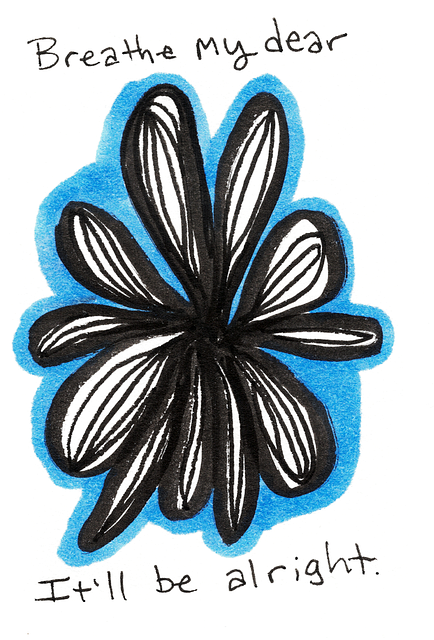Arvada Blended Families Therapy emphasizes self-care as a key to healthy relationships in complex blended families. By prioritizing introspection, setting boundaries, and adopting practices like exercise, balanced diets, and external connections, family members improve mental health and emotional resilience. Empathy-building strategies enhance communication between step-parents and children from diverse backgrounds, fostering a more harmonious home environment. Effective self-care strategies, including stress reduction tailored to individual needs, build resilience and emotional regulation. For professionals, risk management planning prevents burnout by setting clear boundaries and engaging in relaxing activities, ensuring they can support clients while maintaining their own well-being.
In today’s fast-paced world, self-care is essential for maintaining mental and physical health, especially within Arvada blended families. This article explores strategies to enhance self-care practices tailored for these unique households. We delve into understanding the significance of self-care in blended families, identifying individual needs, and setting healthy boundaries. Additionally, we provide effective strategies to foster optimal well-being, offering guidance for a more balanced and harmonious family life.
- Understanding Self-Care and its Importance in Blended Families
- Identifying Personal Needs and Setting Boundaries
- Implementing Effective Self-Care Strategies for Optimal Well-being
Understanding Self-Care and its Importance in Blended Families

In Arvada Blended Families Therapy, understanding self-care is paramount as it forms the foundation for fostering healthy relationships and promoting overall well-being within these unique family structures. Self-care isn’t merely an individual pursuit; it’s a vital strategy to navigate the complexities of blended families, where step-parents, children from previous relationships, and new partners often come together.
By prioritizing self-care, each family member can develop a robust routine that supports their mental health and emotional stability. This includes practices like setting boundaries, engaging in regular exercise, maintaining a balanced diet, and cultivating meaningful connections outside the family unit. Moreover, empathy building strategies play a significant role in enhancing communication and understanding between step-parents and children from different backgrounds, contributing to a more harmonious home environment that ultimately benefits everyone involved.
Identifying Personal Needs and Setting Boundaries

In the journey towards enhancing self-care practices, the first step involves a profound introspection—identifying personal needs. This process is particularly significant for individuals in Arvada Blended Families Therapy, where families are navigating complex dynamics and learning to integrate diverse perspectives. By acknowledging one’s unique requirements, whether it’s a need for solitude, creative expression, or emotional support, individuals can begin to set boundaries that honor their inner world. Setting boundaries is an act of self-preservation; it allows one to say ‘no’ to commitments or demands that drain energy and ‘yes’ to what nourishes the soul.
Effective boundary setting involves clear communication, a skill often enhanced through therapy. Expressing needs assertively yet respectfully can improve relationships, both within families and in personal interactions. This process encourages the development of inner strength, fostering an attitude of positive thinking. It empowers individuals to make choices that align with their values and well-being, ultimately leading to a more balanced and fulfilling life.
Implementing Effective Self-Care Strategies for Optimal Well-being

Implementing effective self-care strategies is paramount for optimal well-being, especially within the context of Arvada Blended Families Therapy. These practices are essential tools for navigating life’s challenges and maintaining a healthy balance. By prioritizing self-care, individuals can foster resilience, enhance emotional regulation, and improve overall mental health. One of the key aspects involves incorporating stress reduction methods tailored to individual needs. This may include mindfulness practices, regular physical activity, or creative outlets that provide an avenue for emotional expression.
Additionally, risk management planning for mental health professionals is crucial in preventing burnout. By setting clear boundaries between work and personal life, scheduling dedicated downtime, and engaging in activities that promote relaxation and rejuvenation, professionals can sustain their own well-being while providing quality care to their clients. Such proactive measures contribute to a more sustainable career path, ensuring individuals are equipped to support others without compromising their mental health.
In the context of Arvada blended families therapy, prioritizing self-care is not just a personal choice but a vital strategy for maintaining balanced and healthy relationships. By understanding the unique dynamics of blended families and incorporating effective self-care practices, individuals can enhance their overall well-being and create a nurturing environment for themselves and their loved ones. Through setting boundaries, identifying personal needs, and implementing tailored strategies, one can achieve a harmonious equilibrium that benefits both individual and familial dynamics in Arvada blended families therapy.














